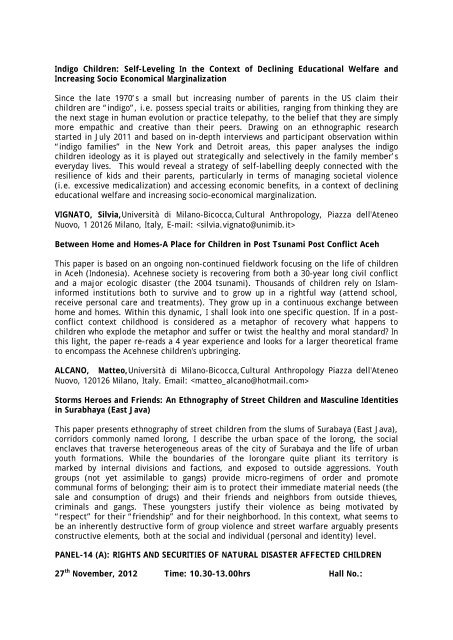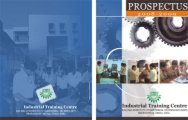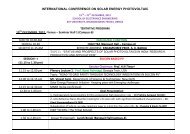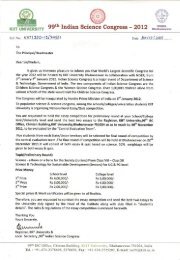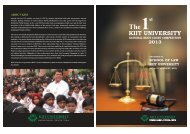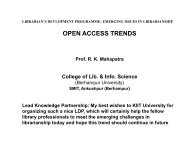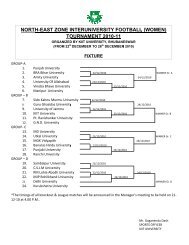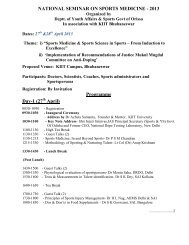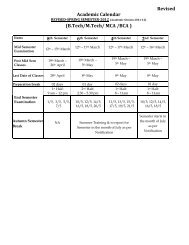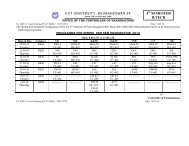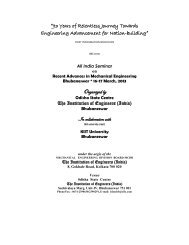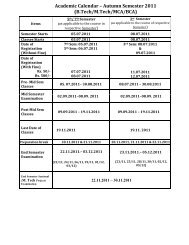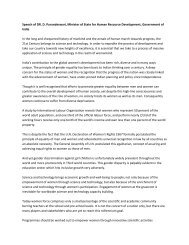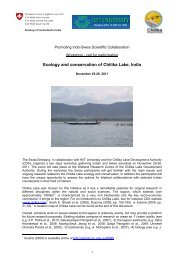PANEL ORGAN - KIIT University
PANEL ORGAN - KIIT University
PANEL ORGAN - KIIT University
You also want an ePaper? Increase the reach of your titles
YUMPU automatically turns print PDFs into web optimized ePapers that Google loves.
Indigo Children: Self-Leveling In the Context of Declining Educational Welfare and<br />
Increasing Socio Economical Marginalization<br />
Since the late 1970’s a small but increasing number of parents in the US claim their<br />
children are “indigo”, i.e. possess special traits or abilities, ranging from thinking they are<br />
the next stage in human evolution or practice telepathy, to the belief that they are simply<br />
more empathic and creative than their peers. Drawing on an ethnographic research<br />
started in July 2011 and based on in-depth interviews and participant observation within<br />
“indigo families” in the New York and Detroit areas, this paper analyses the indigo<br />
children ideology as it is played out strategically and selectively in the family member’s<br />
everyday lives. This would reveal a strategy of self-labelling deeply connected with the<br />
resilience of kids and their parents, particularly in terms of managing societal violence<br />
(i.e. excessive medicalization) and accessing economic benefits, in a context of declining<br />
educational welfare and increasing socio-economical marginalization.<br />
VIGNATO, Silvia,Università di Milano-Bicocca,Cultural Anthropology, Piazza dell'Ateneo<br />
Nuovo, 1 20126 Milano, Italy, E-mail: <br />
Between Home and Homes-A Place for Children in Post Tsunami Post Conflict Aceh<br />
This paper is based on an ongoing non-continued fieldwork focusing on the life of children<br />
in Aceh (Indonesia). Acehnese society is recovering from both a 30-year long civil conflict<br />
and a major ecologic disaster (the 2004 tsunami). Thousands of children rely on Islaminformed<br />
institutions both to survive and to grow up in a rightful way (attend school,<br />
receive personal care and treatments). They grow up in a continuous exchange between<br />
home and homes. Within this dynamic, I shall look into one specific question. If in a postconflict<br />
context childhood is considered as a metaphor of recovery what happens to<br />
children who explode the metaphor and suffer or twist the healthy and moral standard In<br />
this light, the paper re-reads a 4 year experience and looks for a larger theoretical frame<br />
to encompass the Acehnese children's upbringing.<br />
ALCANO, Matteo,Università di Milano-Bicocca,Cultural Anthropology Piazza dell'Ateneo<br />
Nuovo, 120126 Milano, Italy. Email: <br />
Storms Heroes and Friends: An Ethnography of Street Children and Masculine Identities<br />
in Surabhaya (East Java)<br />
This paper presents ethnography of street children from the slums of Surabaya (East Java),<br />
corridors commonly named lorong, I describe the urban space of the lorong, the social<br />
enclaves that traverse heterogeneous areas of the city of Surabaya and the life of urban<br />
youth formations. While the boundaries of the lorongare quite pliant its territory is<br />
marked by internal divisions and factions, and exposed to outside aggressions. Youth<br />
groups (not yet assimilable to gangs) provide micro-regimens of order and promote<br />
communal forms of belonging; their aim is to protect their immediate material needs (the<br />
sale and consumption of drugs) and their friends and neighbors from outside thieves,<br />
criminals and gangs. These youngsters justify their violence as being motivated by<br />
“respect” for their “friendship” and for their neighborhood. In this context, what seems to<br />
be an inherently destructive form of group violence and street warfare arguably presents<br />
constructive elements, both at the social and individual (personal and identity) level.<br />
<strong>PANEL</strong>-14 (A): RIGHTS AND SECURITIES OF NATURAL DISASTER AFFECTED CHILDREN<br />
27 th November, 2012 Time: 10.30-13.00hrs Hall No.:


